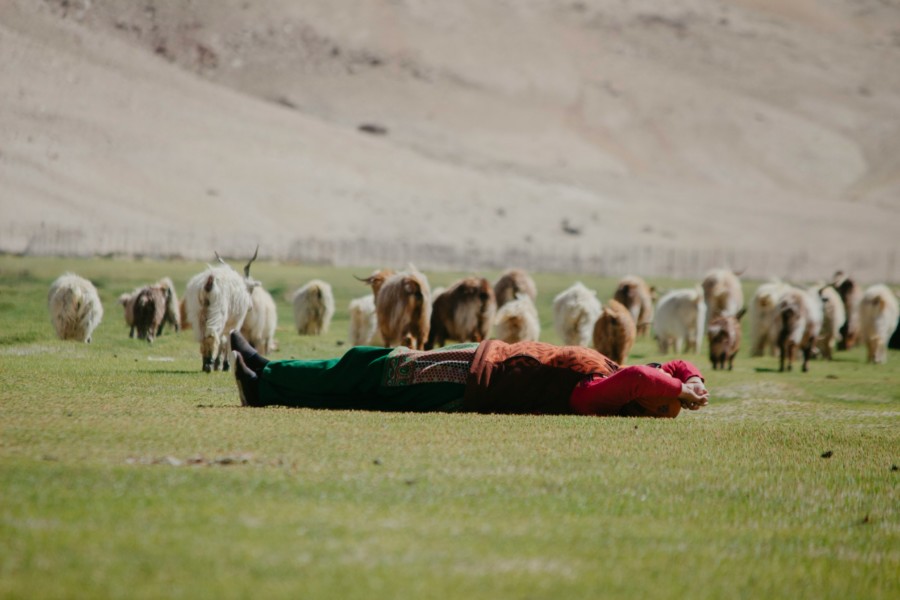In the spirit of my Learned from Yoga posts, I want to draw your attention to a recent post by Aimée Morrison, Let it breathe. An excerpt gives you a flavour of the problem she addresses: When I began teaching, and for some time after, I used to try to assuage such anxieties by crowding […]
Read More »Ethos & Influences
There is lots of advice out there about academic writing and academic careers. Posts in this category elaborate on some of the things mentioned on the about page to give you a better sense of how I approach academic work and the relationship between academic work and other parts of your life. Subcategories include:
End of term chaos
My clients and participants in A Meeting With Your Writing, not to mention various people’s posts on social media, remind me that there is such a thing as End of Term Chaos. Just like Beginning of Term Chaos, this is temporary. It will pass. Is this you? Are you overwhelmed? Tired? Having difficulty focusing? Were you […]
Read More »An advanced writing practice
Jo VanEvery, Academic Career Guide · An advanced writing practice A friend went to yoga class the other day and lay on her back the whole time, absorbing the energy of the group and doing the poses in her head. She felt great afterwards. This is the advanced practice. You know your body well enough […]
Read More »Autonomy & asking for help
Jo VanEvery, Academic Career Guide · Autonomy & asking for help You are smart and competent. You work in an environment that values autonomy. You value autonomy. You feel like you should be able to do things yourself. However, you are also part of a complex division of labour in which other people’s work supports your daily existence. You […]
Read More »Finding your way back to writing
Jo VanEvery, Academic Career Guide · Finding your way back to writing I had a query via the contact form on my website that said, in response to the prompt “What’s on your mind?”, not much, need help to figure out! If that isn’t the tip of an iceberg I don’t know what is. Both […]
Read More »Managing your workload by creating containers
One way to get some control over how much time and energy you give to certain kinds of legitimate requests is to create a container for that kind of work.
Just as it is easier to store flour if you pour it into something with firm sides and a lid (so it doesn’t just flow all over the counter), some tasks can benefit from being contained in particular time periods or particular spaces.
Read More »The benefits of working small
Jo VanEvery, Academic Career Guide · The benefits of working small In another post, I asked: “How could you experiment with working in a relaxed state?” — Is working at or just beyond your limits really effective? I proposed that the ways in which my yoga teacher has been encouraging us to work within the comfortable […]
Read More »Is working at or just beyond your limits really effective?
We live in a culture in which we are often demanded to do more. How much writing can you do in a year/semester/week/hour? How many students can you teach effectively? This constant striving for more leaves many of us feeling inadequate a lot of the time. It also privileges an approach to work that is […]
Read More »On valuing your work
Jo VanEvery, Academic Career Guide · On valuing your work I came across a blog post by an artist that resonated with things I know academics also experience. I’d like to share it with you. The post is Artist’s Statement — Part Two at The Pale Rook. In it, the author talks about her own […]
Read More »Thoughts on work, creativity, and “bureaucracy’s perverse attractions”
An article about university bureaucracy by Elaine Glaser in the Times Higher contained this thought provoking paragraph: In The Utopia of Rules, Graeber offers a convincing account of bureaucracy’s perverse attractions. It offers a chimera of absolute transparency, consistency and fairness. It is like a game with perfect rules – and which is also not […]
Read More »On not being indispensable
I’m not sure when I learned that being indispensable was a bad career strategy or who I learned it from. I just know that I did learn it. If you are indispensable it is hard to take vacations and work reasonable hours. If you are indispensable then you cannot be promoted. (Think about it. Who would […]
Read More »When priorities and boundaries feel like cutting corners: Grading Edition
Jo VanEvery, Academic Career Guide · When priorities and boundaries feel like cutting corners In my Planning classes, I talk about the importance of defining your priorities and setting boundaries. An email from a client reminded me how hard that is in practice. This client was finding it hard to juggle her priorities as the […]
Read More »














